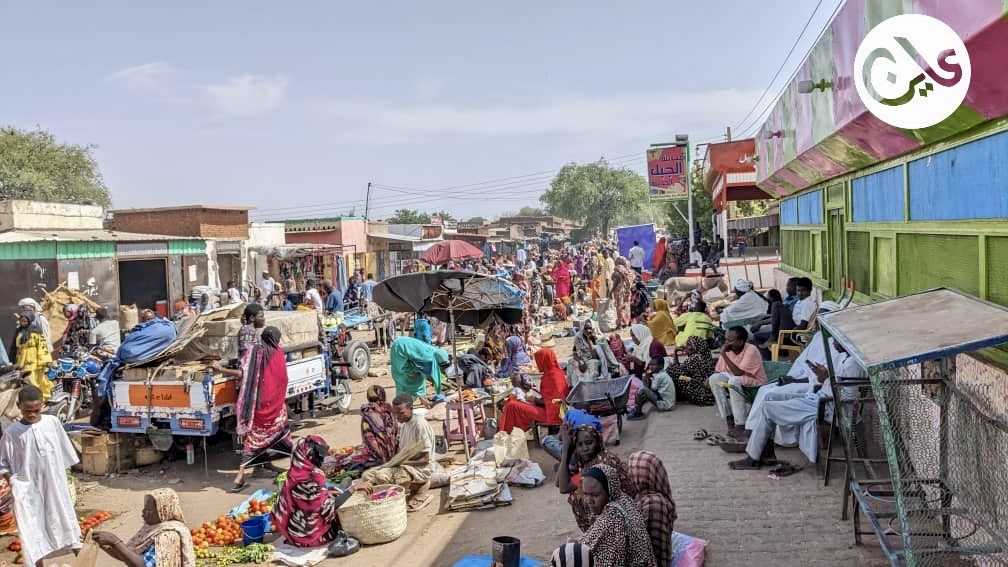RSF form new government in Nyala, while local residents struggle to survive
8 July 2025
At the beginning of the month, the paramilitary Rapid Support Forces (RSF) formalised a new government alliance for the parallel government under RSF control. The announcement, that named RSF commander Mohamed Hamdan Dagalo (“Himedti”) as its head, took place in the parallel government’s capital, Nyala, South Darfur State.
Local Nyala residents hope this political development will foster much needed improvements on the ground. “While the RSF leadership and their supporters claim they are building a new government, these very same cadres rob and terrorise us on the street,” says Adam* a Nyala resident who took the difficult decision to close his shop after being repeatedly looted by armed men.
The alliance, named “Tasis,” or “Founding”, first emerged in February when the RSF, the Sudan People’s Liberation Movement-North (SPLM-N), and other political and civil groups signed a charter in Nairobi. More recently, the alliance has formed a 31-member leadership body and adopted by-laws, according to a press statement by the new alliance. Prominent members of the alliance include the SPLM-N leader Abdelaziz al-Hilu as Vice Chairperson, Alaa Eldin Awad as the official spokesperson, and Makeen Hamid as Secretary.
According to a statement by Alaa Eldin, the “Tasis Alliance re-affirms its full commitment to openness toward all political, civil, and armed entities that oppose the old Sudan, reject war, and support a just, comprehensive, and sustainable peace.” In a speech after the announcement, SPLM-N leader Abdelaziz al-Hilu said the “Tasis” coalition seeks to re-define relations between communities and redefine the relationship between the “margins” and the “centre,” which he described as a “strategic enemy” that has controlled power and wealth and created conflicts among the marginalised to preserve the “historically unstable status quo.”
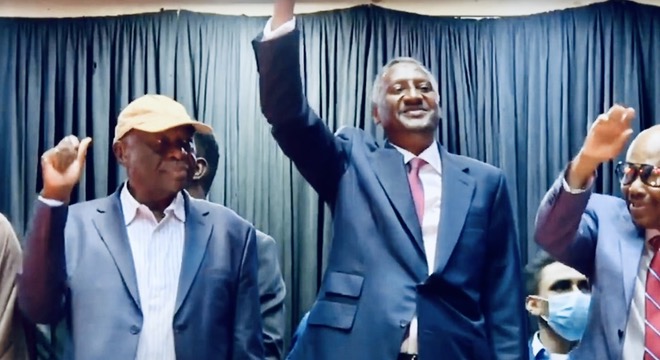
New government on paper
But while many Nyala residents support these sentiments, these same words are not being transformed into actions. Electricity is non-existent. Most civilians are reduced to collecting polluted water by cart from historic wells in Wadi Barli within the city centre as their sole source of water.
“We all want peace – but there is no peace for us [civilians] in Nyala, everyday we are fighting to survive,” Adam added. Ever since the RSF took control of Nyala a year and a half ago incidents of looting, kidnapping —even murder take place on a routine basis, local residents told Ayin. As the capital of the RSF-controlled areas of the country with an international airport, the city has become the favourite target of Sudanese army warplanes from above.
“Not a day goes by without hearing explosions or attacks by warplanes or drones, in addition to the violence and armed clashes that take place between Rapid Support Forces members, especially in the city’s markets,” says Ali Bello, a resident of Nyala’s Jebel neighbourhood. “We live in a state of constant fear, anxiously expecting ground military operations between the army and the Rapid Support Forces will spread to the city.”
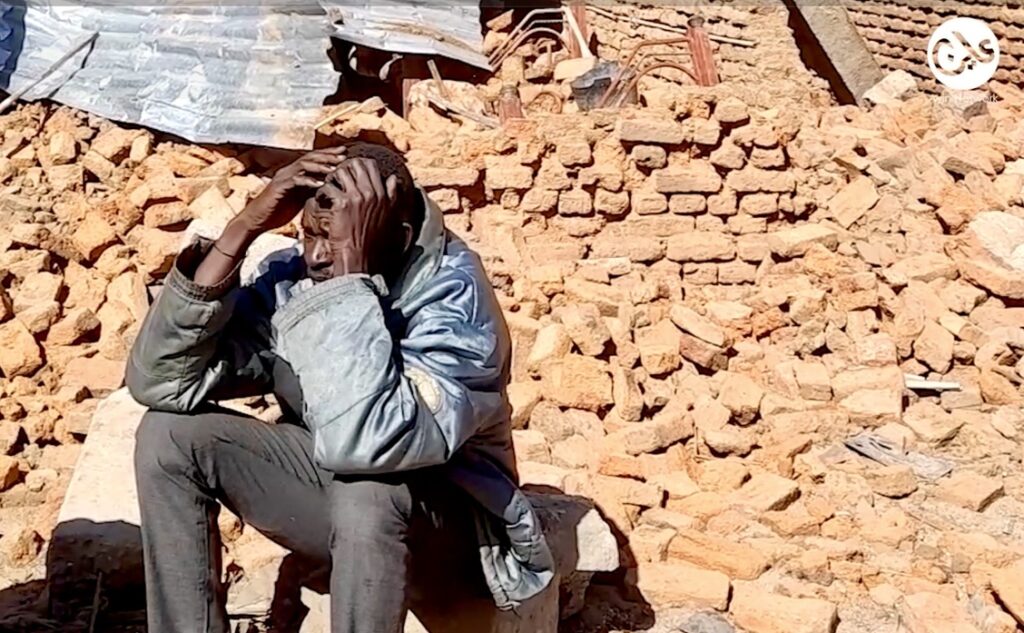
Targeted on the ground and above
Threatened on the ground and in the sky — Sudanese army warplanes routinely launch air strikes on Nyala using indiscriminate bombs in residential areas that target everyone, no matter of their innocence. Fearing bombs from the sky, Nyala residents also fear armed groups on the ground. According to Adam and other residents of Jebel, armed groups frequently kidnap civilians, especially merchants and doctors from minority ethnic groups, accusing them of collaborating with the army.
Insecurity intensified after the arrival of large numbers of RSF soldiers from the warfronts in Khartoum, Jazeera, White Nile, and Sennar states, following military losses in these locations, local residents told Ayin. Since RSF are not paid salaries, says human rights activist Osman Badreldeen, many are induced to stealing to secure their needs. The RSF, however, deny any wrongdoing and claim that those responsible are opportunists who have exploited the wartime conditions.
In late June, Bello told Ayin that gunmen in cars kidnapped two citizens, Adam Omar and Taj al-Deen Ibrahim in two separate incidents. “The kidnappers contacted them via a video call using Taj al-Deen’s phone and demanded a ransom in exchange for his release,” says Suleiman Hussein, a relative to Taj al-Deen. Similar incidents occurred in the Nahda, As-Sad Al-Aali, and Sham El-Nessim neighbourhoods, targeting merchants and doctors who were released after a ransom was paid to their kidnappers. The RSF operate several detention centres in the city, most notably the “Neem Forest” facility and the former military intelligence building, according to news reports.
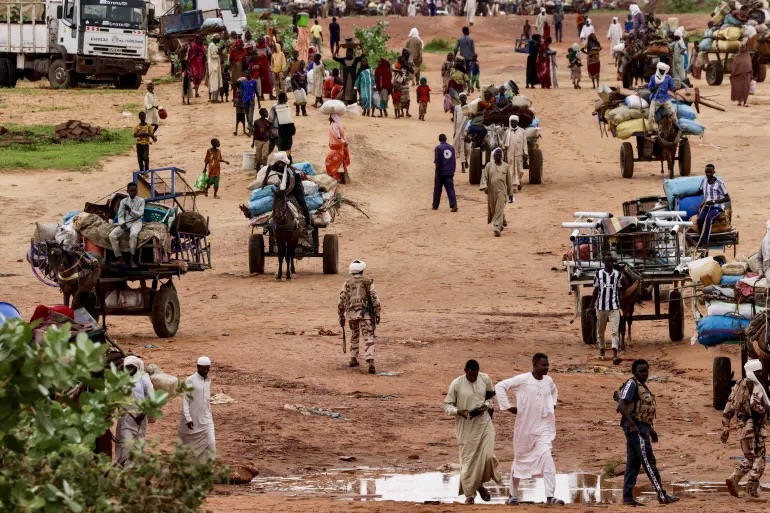
Plundering plazas
In recent months almost none of Nyala’s main markets have been spared by looting sprees by armed groups. Major markets in the city, such as the Geneina Bus Station Market, the Popular Market, and the Jebel Market, have also been subjected to repeated looting attacks, prompting many merchants to close shop. Jebel Market closed down last week due to these repeated lootings.
“The situation has changed radically in the city’s main market after traders migrated due to the war,” says Hamed Mahmoud, a trader at the El Geneina Market in Nyala. “Some traders decided to stay and moved to peripheral markets, but they face constant security harassment. As a result, their capital has been eroded, and they have become street vendors after having previously been major traders in the market.”
But not all markets are targeted. The RSF-controlled Qadira Market, in southwest Nyala, runs smoothly since most traders are officers within the Rapid Support Forces, local sources said. The “Geneina Bust Station” Market, however, is run by traders from African ethnic groups and are subject to constant extortion.
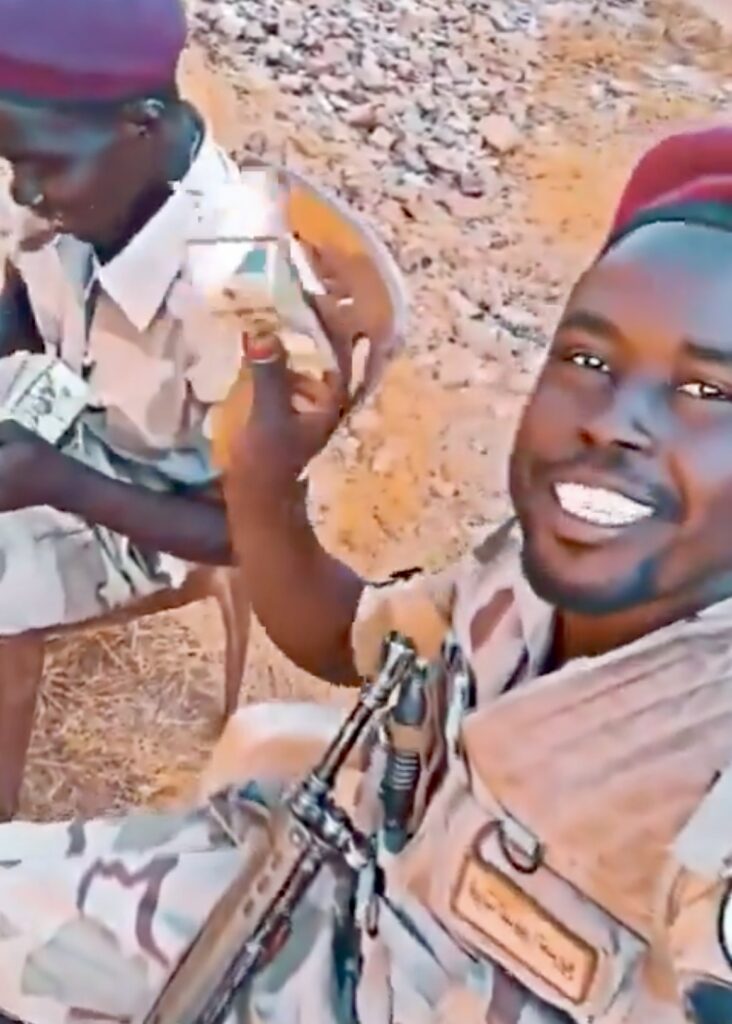
Rich and poor
A trader at the Geneina Bus Station Market also told Ayin that the scarcity of cash has become a major challenge for traders. “People trade in old banknotes, which are no longer valid and are gradually disappearing from the market,” the trader explained.
While most residents struggle to eke out a living, others are rapidly investing in real estate and cars. According to Mahmoud Hamdan, a real estate dealer in the Nyala market, the activity in property buying and selling is due to the large financial resources available to members of the RSF, who are among the most prominent buyers of land, cars, and gold. Wealthy traders in partnership with RSF officers are importing goods from neighbouring countries and exporting Darfur’s crops and livestock through multiple border crossings, Hamdan added.


